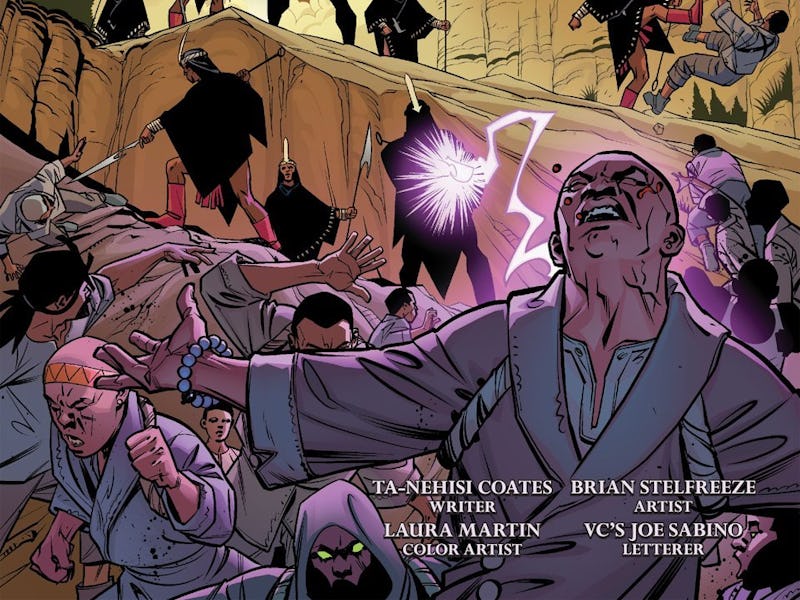3 Things Ta-Nehisi Coates Revealed About 'Black Panther' in 'The Atlantic'
The renowned correspondent is doing the silly pages, and it's been a learning process for the award-winning journalist.

Ta-Nehisi Coates, celebrated correspondent for The Atlantic and author of the 2015 National Book Award-winner Between the World and Me, is diving back into his boyhood with the revival of Marvel’s Black Panther, Coates’ latest assignment. In an exclusive preview in The Atlantic, Coates details the challenge of writing for comics to a presumably unfamiliar audience and as the significance of Black Panther, mainstream pop culture’s premier black superhero.
Coates doesn’t go fanboy and talk continuity, about the ways in which “Secret Wars” changed Black Panther. But he did reveal a few remarkable things, along with a six-page preview of Black Panther #1 releasing in April — how he’s adapted to a medium he knows personally, but not professionally.
1) Comics influenced Coates’ work for ‘The Atlantic.’
Describing the nature of comics as a compromise between “fantastic grandiosity and ruthless efficiency,”isn’t unlike writing for The Atlantic. “This big/small approach to literature, the absurd and surreal married to the concrete and tangible, has undergirded much of my approach,” he writes.
2) His words would mean nada without his artist, Brian Stelfreeze.
Coates notes that the visual lean of comic books presented a worthy challenge.
“Unlike in prose or even poetry, the writer has to constantly think visually. Exposition and backstory exist, but the exigencies of comic-book storytelling demand that they be folded into the action.”
He gives a shout-out to his illustrator, veteran Brian Stelfreeze, whose work on the series has “ultimately influenced the plot” thus far.
“Storytelling in a comic book is a partnership between the writer and the artist, as surely as a film is a partnership between the screenwriter and the director. Brian … doesn’t just execute the art direction—he edits and remixes it,” he writes.
3) ‘Black Panther’ is a true American story, with all that entails.
In the Marvel Universe, “Black Panther” is a title granted only to the worthiest in the fictional African nation of Wakanda, an advanced society un-subjected to colonialism. But under Coates, Black Panther will explore very crucial questions that can only be understood through a uniquely American lens.
In The Atlantic, Coates writes:
In my work for The Atlantic I have, for some time, been asking a particular question: Can a society part with, and triumph over, the very plunder that made it possible? In Black Panther there is a simpler question: Can a good man be a king, and can an advanced society tolerate a monarch? Research is essential in both cases. The Black Panther pulls from the archives of Marvel and the character’s own long history. But it also pulls from the very real history of society—the pre-colonial phase of Africa, the peasant rebellions that wracked Europe toward the end of the Middle Ages, the American Civil War, the Arab Spring, and the rise of ISIS.